This past summer I had the privilege of seeing this form of Eriogonum ovalifolium blooming on the 9,000'< (2750 m) crest of the Steens Mountain in South Eastern Oregon. I was participating in an Eriogonum Society field trip lead by Dr James Reveal and Professor Don Mansfield. There were discussions as to whither this population was variety depressum or variety nivale. Dr Reveal felt it would need further study before it could definitively be assigned to a specific variety.
I am therefore calling it the 'Steens Mountain Form'.
The thousands of plants in this thriving population of Eriogonum ovalifolium form outstanding gray/green cushions 6-10" (15.25-25.4 cm)across and no higher than 1" ( 2.5 cm) tall. The flowers splay out across the foliage attached by short stems. The capitate flower inflorescence are various shades of pink with many intensely pink individuals along side pastel examples. I did happen to find one plant who's flowers were pale yellow with a flush of pink, a stand out among the crowd.
Eriogonum ovalifolium 'Steens Mountain Form'
Forums:

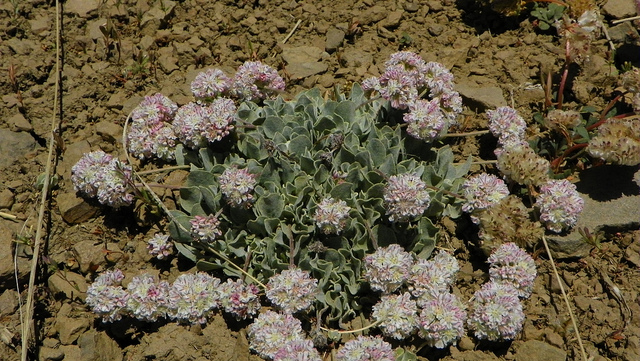
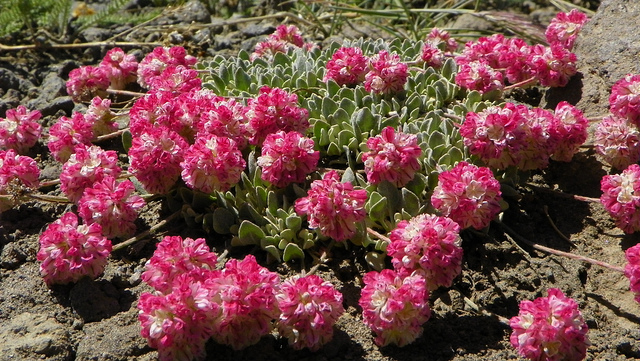

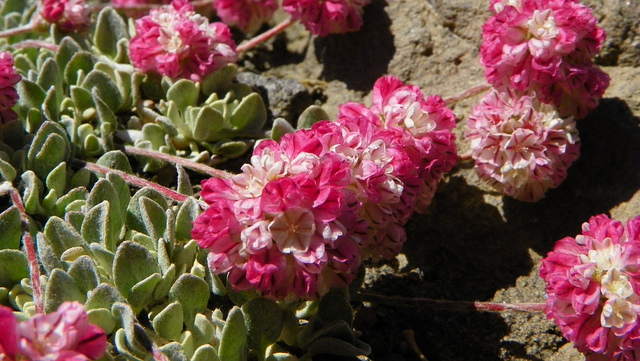
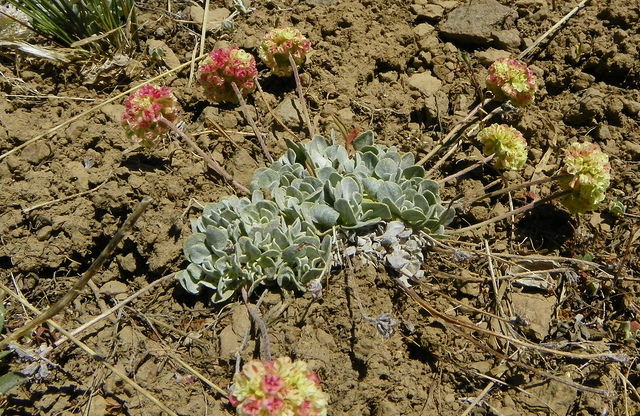
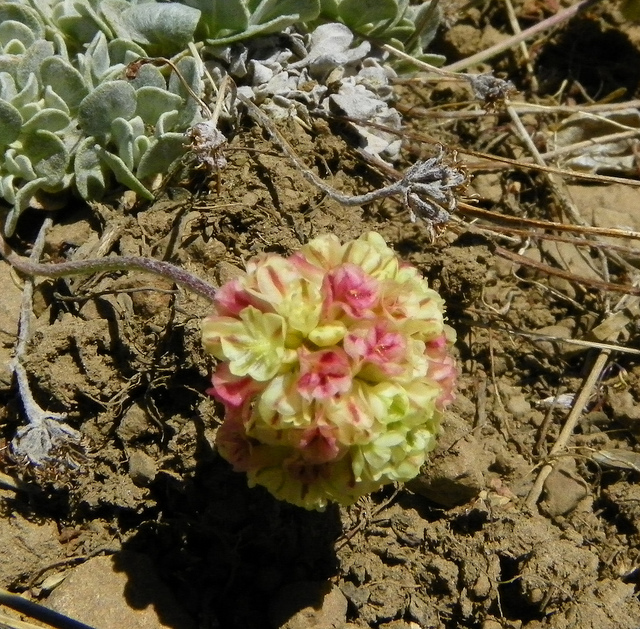
Comments
Mark McDonough
Re: Eriogonum ovalifolium 'Steens Mountain Form'
Wed, 10/31/2012 - 2:01pmOh my, the rich rose form is fantastic! What a privilege to be buckwheat hunting with such esteemed experts, then find some that don't easily fit the keys; gives validation for those times when one finds plants that refuse to fit neatly into defined subcategories. The yellow and pink form is nice too.
Trond Hoy
Re: Eriogonum ovalifolium 'Steens Mountain Form'
Wed, 10/31/2012 - 2:08pmBeautiful, John!
I was tempted to join the Eriogonum Society's summer meeting and field trips last summer but had no time :(
I am very sorry I couldn't!
BTW John, I loved your article in the Rock Garden Quarterly! I'm looking forward to the next one ;)
Richard T. Rodich
Re: Eriogonum ovalifolium 'Steens Mountain Form'
Wed, 10/31/2012 - 7:04pmWhile I always find variations interesting, the first pic with the lavender flowers is the only one of these I'd like in my garden.
Besides the scapes being shorter, to my eyes I think the other colors are too vivid and really clash. :-\ (Now who would have thought I would be saying that... )
Still, a little exposé wouldn't be complete without all of them. Thanks, John!
John P. Weiser
Re: Eriogonum ovalifolium 'Steens Mountain Form'
Fri, 11/02/2012 - 7:35amTrond
I wish you could have joined us. I know I had a grand time.
Steens mountain is located in the northern Great Basin.This massive high desert mountain is a unique basalt block fault mountain, about 50 miles long and 18 miles across, it reaches over 9,700 feet in elevation. The shear eastern face rising a mile above a bleak dry pan known as the Alvord Desert. During the Last Ice age the Steens sported glacers as a result of their action you will find three deep glacial gorges with dramatic views.
Isolation from other mountain ranges has encouraged several species of plants to differentiate into uniquely endemic subspecies and forms. I have a feeling that this form of E. ovalifolium is an example of this process.
John P. Weiser
This variety of Eriogonum
Thu, 05/01/2014 - 10:57amThis variety of Eriogonum ovalifolium has a new designation. It is now known as Eriogonum ovalifolium var. rubidum. Here is a photo to remind everyone of it's habit.
Lori S. (not verified)
Spectacular!!
Thu, 05/01/2014 - 7:58pmSpectacular!!
Trond Hoy
I have still not had any
Mon, 05/05/2014 - 12:58pmI have still not had any success with Eriogonums but am still hoping to get at least some flowering plants one day!